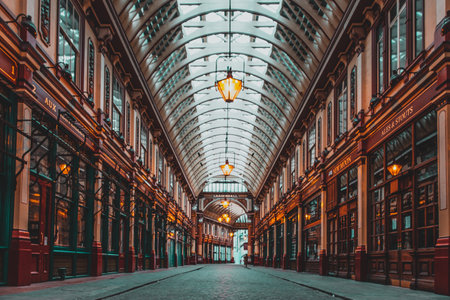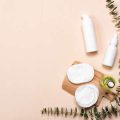1. Understanding the Zero-Waste Beauty Movement
The zero-waste movement is gaining serious momentum across the UK, reshaping not just how we shop but also how we approach our daily beauty rituals. At its core, zero-waste means minimising landfill contributions by reusing, recycling, and composting wherever possible. In Britain, this ethos is deeply linked with both environmental stewardship and a renewed appreciation for traditional, sustainable practices—think refillable containers at your local chemist or buying handmade soap from a farmers’ market in Cornwall. But what exactly does ‘zero-waste’ mean in the context of British beauty?
Zero-waste beauty in the UK isn’t just about packaging—though swapping single-use plastics for glass jars or aluminium tins is certainly a start. It’s also about supporting local brands, choosing ethically sourced ingredients, and opting for products with minimal carbon footprints. Many British consumers are now prioritising brands that offer take-back schemes or creative upcycling initiatives, reflecting a collective shift towards conscious consumption.
To help break down the key components of zero-waste beauty as understood in Britain, here’s a handy comparison:
| Traditional Beauty Approach | British Zero-Waste Beauty |
|---|---|
| Single-use plastic packaging | Refillable, recyclable or compostable packaging |
| Imported products with high carbon footprint | Locally-sourced and produced goods |
| Mass-produced synthetic ingredients | Natural, ethical and traceable ingredients |
| No post-consumer responsibility | Brand-led recycling/take-back schemes |
This movement has inspired UK-based beauty lovers to rethink their routines—embracing everything from shampoo bars made in Wales to refill stations popping up in London’s eco-shops. Understanding these uniquely British perspectives on zero-waste is the first step to creating your own sustainable beauty cabinet that reflects both style and substance.
Assessing Your Current Beauty Collection
Before you dive into the world of zero-waste beauty, its essential to take a thoughtful inventory of what you already own. This mindful approach not only prevents unnecessary purchases but also helps reduce waste by making the most of your existing products. Here’s how you can efficiently assess your current cosmetics and skincare collection, with practical tips tailored for UK residents.
Step 1: Gather and Sort
Collect all your beauty products—makeup, skincare, haircare, and bath essentials—into one space. Lay them out on a clean surface and group similar items together (e.g., all cleansers, all lipsticks). This visual overview can be eye-opening!
Suggested Sorting Categories
| Category | Example Products |
|---|---|
| Makeup | Foundation, Mascara, Lipstick |
| Skincare | Cleansers, Moisturisers, Serums |
| Haircare | Shampoo, Conditioner, Styling Creams |
| Bath & Body | Body Wash, Scrubs, Lotions |
Step 2: Check Expiry Dates & Condition
Go through each product and check its expiry date or period-after-opening symbol (often found as an open jar icon with a number inside). In the UK’s damp climate, products can spoil faster—if something smells off or looks separated, it’s time to let it go.
Step 3: Responsible Use-Up & Repurposing Tips
- Prioritise nearly-empty or soon-to-expire items: Place these at the front of your cabinet to remind yourself to finish them first.
- Repurpose where possible: For example, facial oils past their prime can be used on cuticles or dry elbows; old mascaras (cleaned) make great brow spoolies or cleaning tools for jewellery.
- Avoid hoarding: If you have multiples of the same product type (such as three moisturisers), consider gifting unopened ones to friends or local women’s shelters.
Step 4: Recycle According to Local UK Schemes
The UK offers various recycling options for beauty packaging. Many councils accept plastic bottles and glass jars in kerbside collections, but pumps and mixed-material caps usually need special handling. Major retailers like Boots and John Lewis now offer in-store recycling schemes specifically for hard-to-recycle beauty empties. Always rinse containers before recycling.
Quick Reference: Common UK Recycling Schemes for Beauty Products
| Scheme/Location | Accepted Items | How to Participate |
|---|---|---|
| Council Kerbside Collections | Certain plastics/glass bottles and jars (check council website) | Add to household recycling bins after rinsing out residue |
| Boots Recycle at Boots | Pumps, compacts, mascara tubes, etc. | Create an account online and drop off empties in-store collection bins; earn Advantage Card points per deposit |
| Lush Bring It Back | Lush black pots and certain packaging types | Return five qualifying empties for a free fresh face mask at any Lush shop in the UK |
| John Lewis BeautyCycle Programme | Certain plastic and metal beauty packaging from any brand purchased at John Lewis/Waitrose stores or online | Drop off up to five empties per visit at participating stores BeautyCycle bins |
Your Next Step:
This careful curation is the foundation for building a truly sustainable beauty cabinet. By taking stock mindfully and responsibly handling your current collection, you’re well on your way to embracing zero-waste beauty in true British style.
![]()
3. Sourcing Sustainable British Brands
When building your zero-waste beauty cabinet in the UK, prioritising homegrown brands that champion sustainability is key. Look for British labels that lead the way with eco-friendly packaging, ethical ingredient sourcing, and low-impact formulas—qualities now central to the modern British beauty scene.
Top Homegrown Zero-Waste Beauty Brands
| Brand | Eco-Friendly Packaging | Ethical Sourcing | Low-Impact Formulas |
|---|---|---|---|
| Lush | Recyclable, refillable pots & naked products | Fair Trade ingredients, cruelty-free | Minimal synthetic chemicals, handmade in the UK |
| Evolve Organic Beauty | Glass bottles, recyclable plastic caps | Certified organic & vegan ingredients | Natural, plant-based formulas made in Hertfordshire |
| UpCircle Beauty | Reusable glass jars, aluminium lids | Repurposed waste ingredients (e.g., coffee grounds) | Circular beauty ethos, UK-made |
| Pai Skincare | Recyclable cartons & bottles, FSC-certified paper | Sustainable sourcing, Soil Association certified organic | Hypoallergenic formulations, crafted in London |
Recognising Trusted Certifications
- Soil Association Organic: Guarantees organic ingredients and sustainable farming.
- Cruelty Free International Leaping Bunny: Confirms no animal testing at any production stage.
- The Vegan Society Trademark: Ensures no animal-derived ingredients.
- B Corp Certification: Recognises overall social and environmental performance.
Your Go-To Shopping Spots on the British High Street & Online
| Location/Platform | Description |
|---|---|
| Holland & Barrett | Nationwide stores offering a curated range of ethical skincare and haircare brands. |
| Lush Boutiques | Find packaging-free and refill options at locations across the UK. |
| Content Beauty & Wellbeing (Marylebone, London) | A destination for niche, zero-waste luxury and indie brands. |
| Etsy UK Sellers & Brand Websites | Support independent makers and order direct from local sustainable beauty labels online. |
| Naturisimo.com & LoveLula.com | Boutique e-retailers specialising in eco-certified British and global brands. |
The Takeaway: Support Local, Shop Smartly
Selecting sustainable British beauty means not only reducing your environmental impact but also supporting ethical practices within your community. Whether you’re picking up a shampoo bar on your high street or ordering a refillable serum online, every choice brings you closer to a truly zero-waste beauty routine rooted in British values of innovation and responsibility.
4. Mastering Refills, Reusables, and DIY Solutions
Embracing a zero-waste beauty routine in the UK is all about making savvy switches to refills, investing in reusable tools, and exploring simple DIY recipes using ingredients from your local shops. Here’s how you can integrate these sustainable swaps into your daily beauty ritual—without sacrificing style or performance.
Discovering Refill Shops Across the UK
The British high street has seen a boom in refill shops, making it easier than ever to restock beauty essentials with minimal packaging. Many shops, such as Holland & Barrett, Lush, and independent zero-waste stores in cities like London, Manchester, and Bristol, offer refills for everything from shampoo to face cleansers. Simply bring your own containers and pay for what you need—a win for both your wallet and the environment.
Popular UK Refill Shops
| Shop Name | Location | Refill Options |
|---|---|---|
| Lush | Nationwide | Shampoo bars, skincare, perfumes |
| The Source Bulk Foods | London, Brighton, Leeds & more | Oils, soaps, bath salts |
| Zero Waste Path Shop | Online/UK-wide delivery | Cleansers, moisturisers, deodorants |
| Holland & Barrett (selected branches) | Major cities | Body wash, hand soap refills |
Switching to Reusable Beauty Accessories
Ditch single-use cotton pads and face wipes for chic reusable alternatives. British brands now offer washable muslin cloths, bamboo makeup remover pads, and silicone applicators—all designed to withstand frequent use while staying gentle on skin. Pop them in with your regular laundry and they’re good as new.
Reusable Accessory Checklist for Your Beauty Cabinet:
- Bamboo or organic cotton pads for cleansing and toning
- Muslin face cloths for gentle exfoliation (ideal for sensitive British complexions)
- Stainless steel razors with replaceable blades (for a close shave minus the plastic waste)
- Silicone or glass jars for storing homemade beauty concoctions
Your Go-To British DIY Beauty Recipes
If you fancy a bit of kitchen chemistry, try these easy DIY recipes using ingredients easily found at Sainsbury’s, Tesco or your local greengrocer. They’re not only eco-friendly but also budget-conscious—perfect for anyone looking to give their routine a homegrown twist.
| Recipe Name | Main Ingredients (UK-sourced) | How to Use |
|---|---|---|
| Cucumber & Oat Cleanser | Cucumber, oats, water | Mash together; massage onto face; rinse with warm water. |
| Bristol Honey Lip Scrub | British honey, brown sugar, olive oil | Smooth over lips; gently rub; wipe away excess. |
| Earl Grey Face Mist | Earl Grey tea bag, filtered water, drop of lavender oil (optional) | Brew tea; cool; decant into spray bottle; spritz as needed. |
| Avo Glow Mask | Avocado, plain yoghurt (local), squeeze of lemon juice | Mash; apply to clean face; leave 10 mins; rinse off. |
Pursuing Zero-Waste: The British Way Forward
By embracing refills from trusted local shops, swapping to reusable accessories rooted in quality British design, and experimenting with DIY recipes straight from your kitchen cupboard, you’ll be well on your way to a stylishly sustainable beauty cabinet that minimises single-use waste—one thoughtful choice at a time.
5. Building Daily Habits for a Low-Impact Routine
Transitioning to a zero-waste beauty routine doesn’t happen overnight—especially in the UK, where traditional self-care rituals are cherished. The key is to build small, sustainable habits that blend seamlessly into your everyday life. Here’s how you can gradually embrace eco-friendly changes without compromising on that signature British flair for self-care.
Mindful Makeup Swaps
Start by replacing single-use items with reusable or compostable alternatives. For example, swap out cotton pads for washable muslin cloths (a British bathroom staple) and opt for refillable makeup palettes from local brands. Gradually phase out products as you finish them—there’s no need to waste what you already own.
| Traditional Item | Zero-Waste Swap |
|---|---|
| Cotton Pads | Muslin Cloths |
| Plastic Bottled Cleanser | Bar Cleansers or Refillable Bottles |
| Makeup Wipes | Bamboo Flannels |
Water-Saving Tips with a British Twist
Water conservation is increasingly important, especially during hosepipe bans or dry summers common in the UK. Try these tips inspired by typical British routines:
- Fill a basin to cleanse your face instead of running the tap—just like classic British skincare rituals.
- Shorten showers and turn off the water while applying hair masks or exfoliators.
- Re-purpose cooled tea bags (favourites like Earl Grey or English Breakfast) as soothing eye compresses before composting them.
Embracing Community & Local Brands
Support British indie beauty brands leading the way in sustainability. Pop into local zero-waste shops for refills and join community workshops to learn DIY recipes—a great way to connect with neighbours and share tips over a cuppa.
Your Gradual Transition Checklist
- Replace one disposable product per month with a sustainable alternative.
- Set up a recycling station in your bathroom for empties and packaging.
- Create a weekly ritual: Sunday evenings for deep cleansing using reusable accessories and natural ingredients from your kitchen.
The essence of a British zero-waste beauty cabinet lies in thoughtful habits, not perfection. By making conscious swaps and honouring local traditions, you’ll soon find that low-impact living feels just as pampering as any luxury ritual—if not more so.
6. Community Initiatives and Responsible Disposal
When it comes to building your zero-waste beauty cabinet in the UK, individual efforts are just one piece of the puzzle. Getting involved with local community schemes and responsible disposal options can make a significant difference. Many British councils now offer dedicated recycling schemes specifically for beauty packaging—think shampoo bottles, old mascara tubes, and even used razors. Additionally, chemists and major retailers such as Boots and Superdrug have launched take-back initiatives where you can return empties from brands they stock. This not only diverts waste from landfill but also encourages brands to adopt more sustainable packaging.
Where to Recycle Beauty Products in the UK
Scheme |
What You Can Recycle |
How to Participate |
|---|---|---|
| Boots Recycle at Store Scheme | Plastic beauty packaging (bottles, pots, tubes) | Drop off at designated bins in-store; earn Advantage Card points |
| Superdrug Recycle at Store Programme | Empty makeup products, skincare containers | Return items to participating stores; check location list online |
| Terracycle Partnerships | Hard-to-recycle beauty packaging | Locate drop-off points via Terracycle’s website or post items directly |
| Council Recycling Centres | Aerosols, glass jars, some plastics | Check your local council’s recycling guidelines before visiting centres |
Get Involved Locally: Swaps & Community Events
The British beauty community is increasingly turning to swaps and events to reduce waste and promote mindful consumption. Look out for local ‘beauty swap’ events, often hosted in community centres or eco-conscious shops. Here, you can exchange unused or gently used products with others—a great way to try new brands without buying more. Keep an eye on social media groups or Eventbrite for upcoming swaps in your area.
Tips for Maximising Community Impact:
- Join Online Forums: Platforms like Facebook Groups or Nextdoor often feature local swap announcements.
- Create a Mini Swap: Organise a swap within your friend circle or workplace to keep products circulating.
- Support Local Charities: Donate unopened or barely-used products to women’s shelters or charities accepting toiletries.
- Stay Informed: Sign up for updates from your council or favourite chemist about new recycling options and community initiatives.
Tapping into these community-driven solutions ensures that your journey towards a zero-waste beauty cabinet is not only good for the planet but also connects you with like-minded individuals across the UK.


